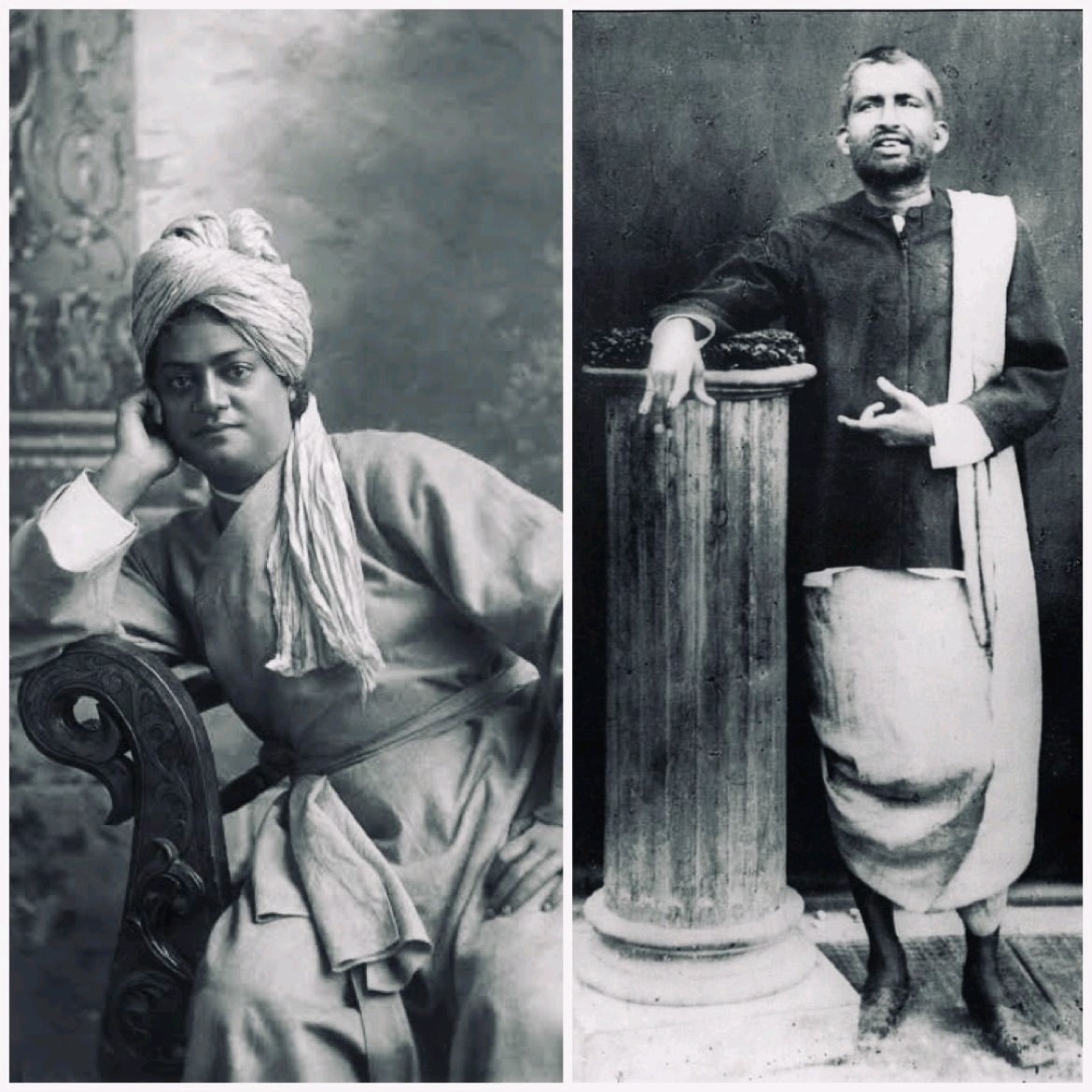“My faith is in the younger generation, the modern generation. They will work out the whole problem like lions.”
These were the golden words by Swami Vivekananda, who is the most iconic spiritual leader that India gave to the modern world. In his short lifespan of 39 years, Vivekananda cast a major influence on his generation through social work, spiritual leadership and thoughts.
Vivekananda was born on January 12, 1863, and leading an eventful and journeyed life died on July 4, 1902.
The ideology expounded by the torch bearer of India’s ancient and spiritual heritage still resonates strongly with the current generation of youth.
Vivekananda’s teachings and ideals were relevant as much during his lifetime as they are in the 21st century India and the world community in general.
Ironically, the message of global brotherhood and respect for the different cultures and faiths propounded by him sound more contemporary in the new millennia, when the world is becoming a global village and the youth seamlessly travel between continents for education and career.
The Swami, who was born in British India, went on to become one of the most widely travelled Indians and a reverred figure for not only Indian but the Western world comprising the most advanced nations including the United States of America (USA), United Kingdom (UK), France, Germany etc.
His whole life was a treasure trove of idealism yet pragmatism, spiritualism yet humanism, traditional yet modern and benign yet determined for the youth to embody.
Non-orthodox
His inspiring ideals and non-orthodox method of disseminating message was a potent tool that Vivekananda employed effectively to articulate his views to the youth and to inculcate in them, the attributes of good human beings and worthy world citizens.
Despite his massive following among the masses, particularly youth, the Swami was not without his detractors, who flayed his rather simplistic template of exposition and condensing the complex religious and spiritual concepts.
However, Vivekananda remained steadfast in his firm beliefs, taking on his detractors, both in India and abroad, in his inimitable style and condour. His determined approach only led to a further increase in his supporters and rising of his cult stature.
Youth icon
“Take risks in your life. If you win; you may lead… If you lose, you may guide.”
When the Swami set out his foot to participate in the world religious conference in 1893 at Chicago (USA), little did he know that his pro-humanity views and candid demeanour would fascinate the audience to an extent that he would spend a longish spell in the US.
Vivekananda, who was deeply influenced by the Hindu culture and religious ethos, however, tried to absorb the best of the Western world in terms of technological advancements and frugality of their religious customs.
During his sojourn in the US and European countries, he closely observed the positive traits of their modern society which emphasised on the dignity of labour and human rights, apart from civility and civic awareness.
He was of the opinion that India should not only revive its ancient glory and rekindle its lofty learning of the Vedas and Upanishads, but espouse the virtuous characters of the Western society that thrived on enterprise and technological advancements.
This clearly demarcates the essence of the Swami as a forward looking mystique not bound by time and space boundaries.
Subhash Chandra Bose’s eulogy
Acknowledging the triumphant qualities of Vivekananda, Netaji Subhash Chandra Bose, another worthy timeless icon of India, had waxed eloquent on the Swami.
Talking of Vivekananda, Netaji had remarked, “A Yogi of the highest spiritual level in direct communication with the truth who had for the time being consecrated his whole life to the moral and spiritual uplift of his nation and of humanity, that is how I would describe him. If he had been alive, I would have been at his feet.”
The glowing tribute from Netaji, who is among the tallest stalwarts of India’s freedom movement, indicates the deep influence the Swami had on the most reverred personalities of his times.
Considering that the paths chosen by Netaji and Vivekananda were diametrically opposite, since they ascribed to armed struggle for independence and spirituality respectively, the analogy drawn by Bose is a testimony that the Swami had the intrinsic quality to inspire beyond the ideological spectrum.
Seeker of truth
“My hope of the future lies in the youths of character, intelligent, renouncing all for the service of others, and obedient – good to themselves and the country at large.”
Vivekananda was a universal seeker of truth and embodied an unquenchable thirst for spiritual excellence.
Disregarding his physical condition and personal safety, there were innumerable times when he embarked upon solitary missions in the natural surroundings in his quest for inner peace. His motive was not confined to seek self gratification but discover new paths to usher in the mankind ravaged by wars, poverty, subjugation and conflicts as well as personal weaknesses such as anger, ego, depression etc.
Although Vivekananda walked Earth only till 1902, yet the gap of more than 100 years, has failed to fade out his perceptible dominating persona. Even today, the literature and books devoted to the Swami are a sellout drawing huge traction, especially among the youth.
The vibrancy of his selfless personality vibrates whenever Vivekananda is invoked either in random thoughts or formal discussions. His life size posters could be commonly seen adorning the walls of the abodes of intellectuals, academics, social workers and politicians.
The strong imprint of Vivekananda on the Indian conscience inspires the youth to tread his path with dedication and resolve, yet with a probing mind.
Ramakrishna Math
The institution of Ramakrishna Math founded by Vivekananda reverberates his ideology. These edifices set up in major cities in India and abroad have become veritable symbols of modern Indian youth imbibing ancient values yet equipped with modern temperament to compete globally.
The precincts vibrate with youth energy and the social and cultural programmes organised therein are imbued with the undying spirit of Vivekananda and his pious life that he devoted to the cause of the coming generations of his motherland.
The idea behind the establishment of the Math was to provide peaceful surroundings to the seekers of truth who are modern in outlook but are driven by reverence to our ancient roots. The Swami wanted to act as a catalyst for such a generation of future leaders in India, who would usher in the country to the forefront of a league of nations.
21st century challenges
“Arise! Awake and stop not until the goal is reached.”
After the passing away of Vivekananda in 1902, it is the fifth generation which is now waiting in the wings to take over the reins of India.
The 21st century has thrown up unlimited possibilities for the youth to showcase their talents and lead the nation through the multitude of challenges.
The matrix of globalisation, climate change, pandemic, technology driven disruption, migration, conflicts etc are some of the most urgent issues seeking speedy resolution.
The growing aspirations of the youth are a double edged sword. On one hand, it drives and inspires pursuit of excellence, but on the other it sows the seeds of disenchantment and disillusionment if goals are not achieved within a set timeframe.
In such a scenario, the message of Vivekananda has the propensity to strike a balance between the worldly and individual goals. His teachings groom the youth with such mental makeup and temperament to effectively deal with the life’s challenges by drawing from inner strength and composure.
It is not without reason that Prime Minister Narendra Modi and other top Indian leaders routinely invoke the legacy of Swami Vivekananda to remind the country, especially youth, the power of self belief and determination to change the course of history.
Podcast: India’s Annual Budget 2023-24
Conclusion
The Swami remains a forceful symbol of youth power, while his message transcends barriers of age and borders. Vivekananda will continue to inspire the generations to come.

